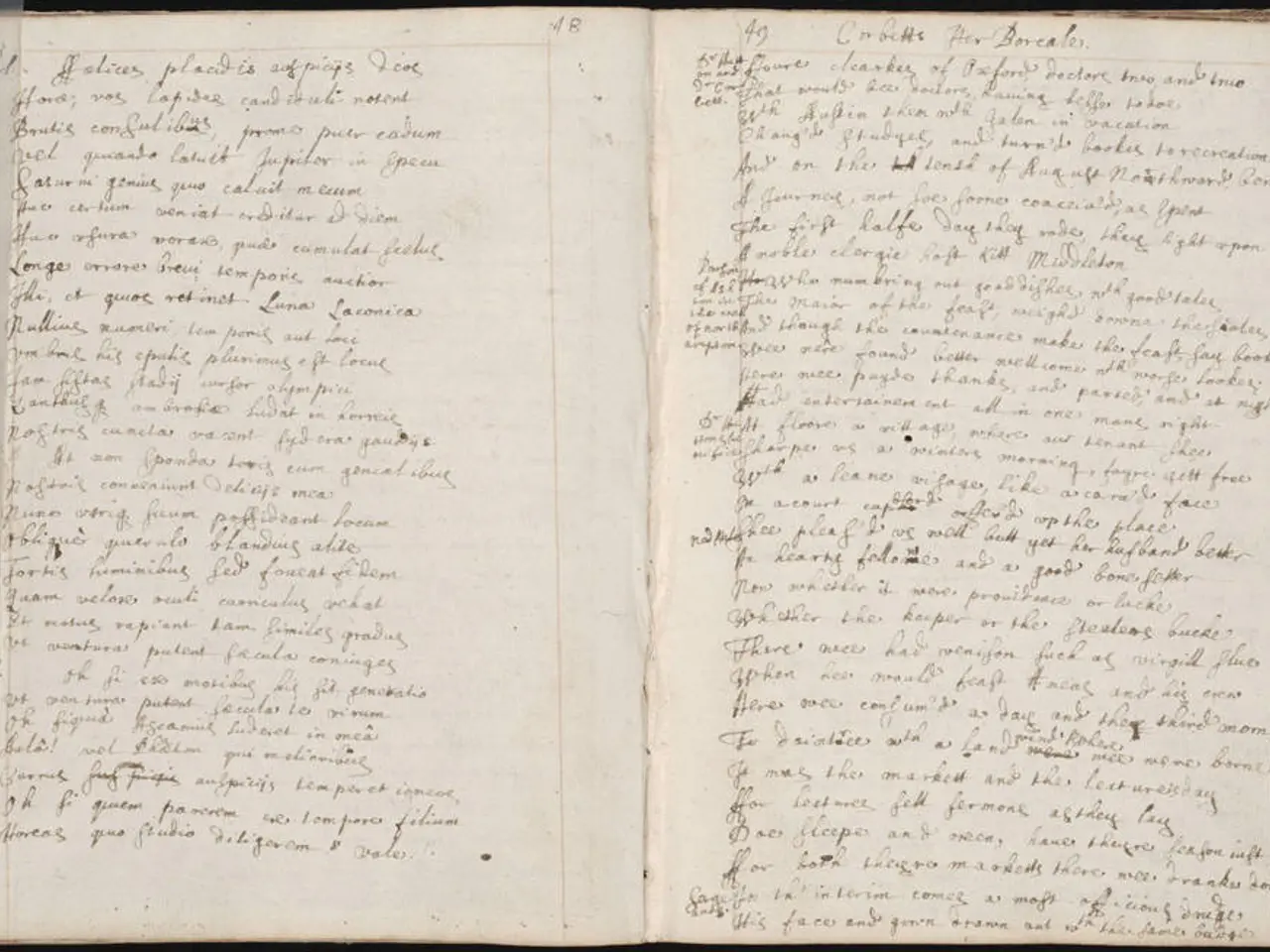Boethius: Roman's Fall, First Christian Philosopher of Intellect
Boethius, a Roman consul and advisor to Theoderic in the 5th century AD, is renowned for his groundbreaking philosophy that sought to reconcile classical Greek thought with Christian theology. His life and work serve as a testament to the enduring power of thought and the importance of contemplative reflection.
Boethius' most famous work, De consolatione philosophiae (The Consolation of Philosophy), was penned while he languished in the dungeon of Pavia, knowing no mercy remained for him except spiritual. This masterpiece combines a Platonic view of knowledge as innate ideas—memory of a prior existence—with an exploration of themes like providence, divine foreknowledge, fate, chance, and human happiness.
Philosophically, Boethius argued that universals (concepts applicable to many things) are mental abstractions rather than independently existing entities, thus presenting an Aristotelian doctrine in his logical writings. This approach, which emphasised the power of thought over the force of circumstances, was a counterpoint to the political reality of his time, not to deny it, but to illuminate it.
Boethius' work serves as a conduit for Aristotelian logic and Platonic thought before the full rediscovery of Aristotle’s works in the 12th century spurred the scholasticism movement. His translations and writings not only preserved ancient philosophy but also framed major medieval philosophical debates, making him a key figure in the transition from the classical world to the Middle Ages.
Boethius is considered a mediator between philosophy and theology, and between figures like Plato, Cicero, Augustine, and Thomas Aquinas. His philosophy is likened to a light in the darkness, a Roman statue that defies time because something timeless lives within it. The true reward, says philosophy in Boethius' work, lies not in worldly honors, but in the recognition of the divine order that remains even when tyranny triumphs.
Boethius' magnum opus, "De Consolatione Philosophiae", is a dialogue between a fallen man and personified philosophy. It emphasises that the individual should take responsibility before truth, not before history. Boethius' philosophy is presented as a form of resistance against the demands of history, not as a denial of it, but as a way of life, not just theory.
Boethius' life serves as proof that thought endures, even when the philosopher dies. His work continues to inspire and influence philosophers, theologians, and thinkers to this day, making him a pivotal figure in the intellectual history of Western civilization.
[1] Kretzmann, N., Stump, E., & Urmson, J. O. (1982). The Cambridge History of Later Medieval Philosophy. Cambridge University Press. [2] Copleston, F. C. (1950). A History of Philosophy, Volume 2: Medieval Philosophy. Image Books.
1} Boethius' philosophical works, particularly his magnum opus, "De Consolatione Philosophiae," greatly contribute to the realm of education and self-development, offering insights into timeless themes such as truth, divine order, and human happiness.
2} Boethius' contributions to Aristotelian logic and Platonic thought, preserved through his translations and writings, have made him a significant figure in the history of education and self-development, influencing subsequent philosophers, theologians, and thinkers throughout the ages.




